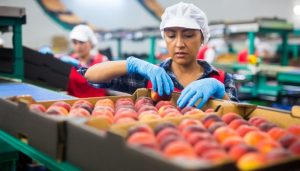In an era where efficiency, sustainability, and quality are paramount, data-driven decision-making is revolutionising the food production industry. From farm to factory, producers are leveraging real-time insights to optimise operations, reduce waste, and meet evolving consumer demands.
Precision in Supplier Selection
Choosing the right suppliers is no longer a matter of intuition. With data analytics, food manufacturers can evaluate suppliers based on delivery performance, quality consistency, and cost trends. This scientific approach ensures reliable partnerships and minimises risks associated with poor sourcing decisions.
Quality Assurance Through Real-Time Monitoring
Consistency in raw materials is critical to product integrity. Advanced sensors and AI algorithms now enable manufacturers to monitor variables like moisture content, grain size, and temperature in real time. This ensures that only high-quality inputs enter the production line, reducing rework and enhancing customer satisfaction.
Cost Efficiency and Resource Optimisation
With rising energy and ingredient costs, data analytics helps manufacturers pinpoint inefficiencies and optimise resource allocation. Systems like Existco Plant Control System – ExPCS provide visibility into inventory usage, batch control, and production scheduling, empowering teams to reduce overhead and improve ROI.
Sustainability and Waste Reduction
Australia wastes over 7.6 million tonnes of food annually. Data-driven platforms like ExPCS help combat this by tracking yield losses, spoilage, and energy consumption. Real-time insights allow producers to adjust processes dynamically, reducing waste and supporting national sustainability goals.
Strategic Partnerships and Continuous Improvement
Data doesn’t just inform, it transforms. By continuously analysing performance metrics, manufacturers can refine operations and foster strategic supplier relationships. This leads to collaborative innovation and long-term growth.
Conclusion
As the food production industry faces mounting pressures, from climate change and resource scarcity to shifting consumer expectations—data-driven decision-making emerges as a powerful ally. By harnessing real-time insights, producers can not only streamline operations and reduce waste but also deliver higher quality products with greater transparency and sustainability. The future of food is not just about what we grow or how we process. It’s about how intelligently we manage every step of the journey. With platforms like ExPCS leading the charge, the industry is poised for a smarter, more resilient tomorrow.
References:
How Data-Driven Decisions are Revolutionising the Food Industry – SourceDogg





